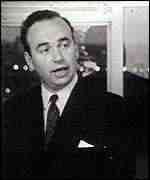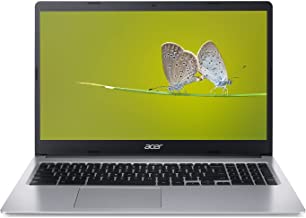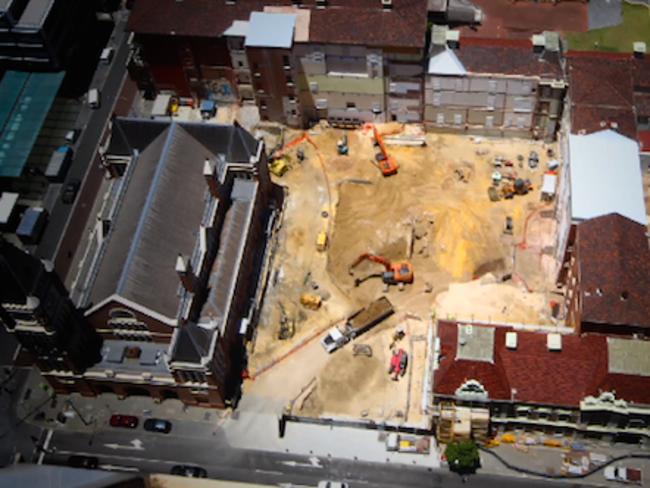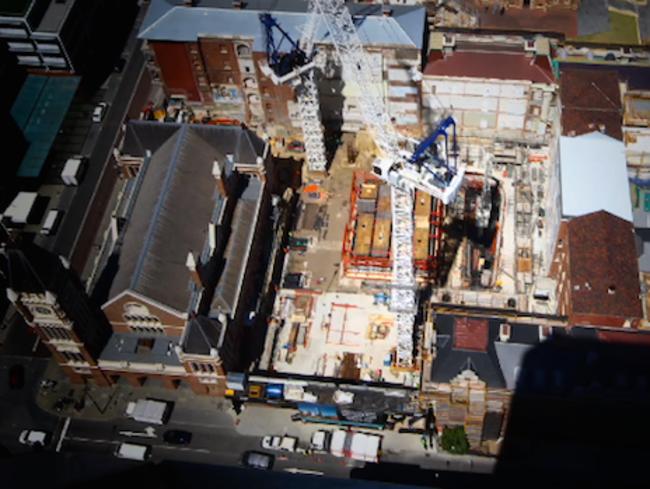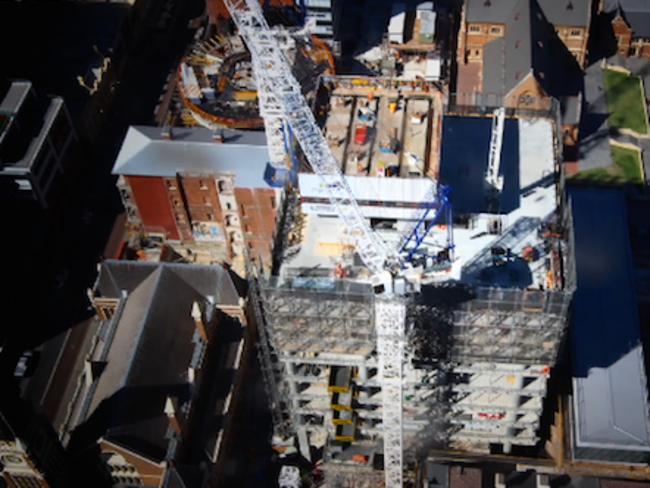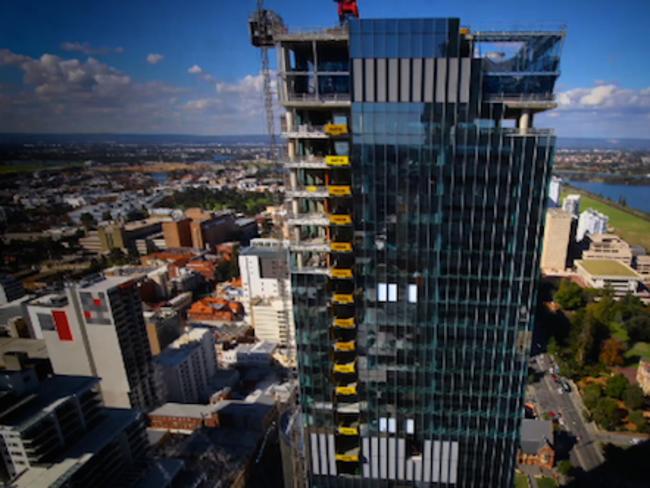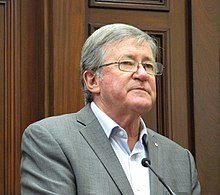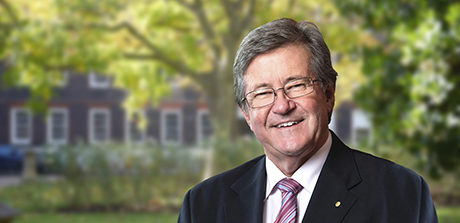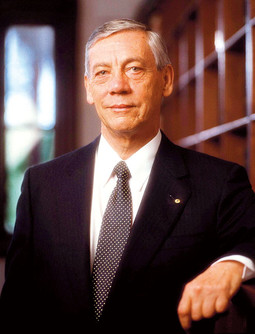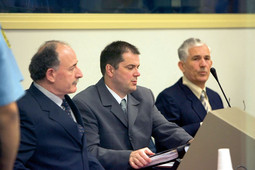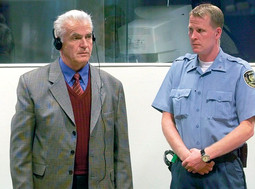Click Here for INL News Amazon Best Seller Books
INLTV Uncensored News
INLTV is Easy To Find Hard To Leave
About the Supreme Court of Western Australia
CIA and MI6 Hackers removed all live videos
from the www.inltv.co.uk website.
Work is being done to reload them all.
It may take some time
Important Message from www.INLtv.co.uk
Julian Assange extradition ruling labelled a ‘travesty of justice’
Reporters Without Borders condemned the decision,
which it said will prove historic ‘for all the wrong reasons’
Sir Francis Theodore Page Burt AC KCMG QC
1990 – 1993 was the Governor of Western Australia
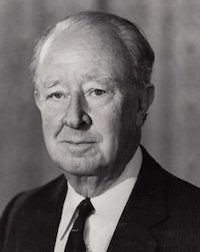
Sir Francis Theodore Page Burt AC KCMG QC
Sir Francis Burt held the offices of Judge of the Supreme Court of Western Australia between 1969 and 1977; Chief Justice of Western Australia between 1977 and 1988 a
Francis Burt was born in Perth in 1918 and educated at Guildford Grammar School. He later studied law at the University of Western Australia. Sir Francis Burt is a patrilineal descendant of Western Australia’s first Chief Justice, Sir Archibald Burt (1861 – 1879).
Following service in the Second World War, Sir Francis, as a prominent Perth lawyer, founded the Bar in Western Australia in 1961 and, with others, he established the Bar Chambers in 1962. With his permission, these chambers have been named the Francis Burt Chambers in recognition of a great Western Australian and outstanding jurist.
He was married to Margaret Lloyd and they had two sons and two daughters.
Sir Francis held the offices of Judge of the Supreme Court of Western Australia between 1969 and 1977; Chief Justice of Western Australia between 1977 and 1988 and Lieutenant Governor of Western Australia between 1977 and 1990.
On 19 March 1990 he was appointed Governor of Western Australia, retiring on 31 October 1993.
Click Here for INL News Amazon Best Seller Books
Click Here for the best range of Amazon Computers
Statement made by Detective Frost who is the star of the Touch of Frost TV Show
"if a defendant who has been charged for a serious crime can afford a very high priced Barrister .... it is very likely that the Judge at his trial is from the same Freemason Lodge as the Barrister the defendant has hired ..."
Response to this comment taken from the INL News 50 Year Special Investigation Report into the Running of the Supreme Court of Western Australia:
"... The above statement made by Detective Frost rings very true and matches the information our INL News 50 Year Special Investigation Report into the Running of the Supreme Court of Western Australia .....!
The Supreme Court is the State's highest court and is divided into two divisions -
the General Division and the Court of Appeal
Website: https://www.supremecourt.wa.gov.au
To Contact the Supreme Court of Western Australia
Level 11, David Malcolm Justice Centre
28 Barrack Street
PERTH WA 6000
The switchboard number is: (08) 9421 5333 (8am to 5pm)
The Supreme Court buildings are open from 8am to 5pm on weekdays but are closed at weekends and on public holidays.
The Supreme Court General Division Registry is on Level 11 of the David Malcolm Justice Centre and is open from 9am to 4pm Monday to Friday.
The Court of Appeal Registry is in the Stirling Gardens building and is open from 9am to 4pm Monday to Friday.
Urgent after-hours applications to the Supreme Court of Western Australia
For urgent applications to a judge outside business hours please call (08) 9421 5333 and your call will be transferred.
Postal Address of the Supreme Court of Western Australia
Supreme Court of Western Australia
Level 11, David Malcolm Justice Centre
28 Barrack Street
PERTH WA 6000
Supreme Court of Western Australia -The General Division
Civil and criminal actions are determined in the general division.
The General Division deals with only the most serious offences such as homicide and related offences, and serious breaches of Commonwealth drug enforcement laws. Judges generally preside over jury trials, where a jury of 12 members of the community decide if an individual is guilty or not guilty of a criminal charge. The General Division also hears appeals from decisions of magistrates sitting in criminal matters in the Magistrates Court.
The Division also deals with civil matters of a complex nature or where the amount involved in a dispute is more than $750,000, as well as applications for injunctions and other forms of relief. In Western Australia, most civil trials are heard without a jury.
Civil actions are heard by a single judge. Prior to hearing they are usually managed by a registrar who gives directions to the parties to try and ensure that each case settles by agreement between the parties or proceeds to trial in the quickest, most cost effective way, consistently with the need to provide a just outcome. In certain circumstances, civil actions are managed by a judge.
The Supreme Court deals with all matters involving wills and the administration of deceased estates. This includes appointing a person to deal with a deceased person's property following death.
The Court of Appeal of the Supreme Court of Western Australia
The Court of Appeal Division of the Supreme Court was established on 1 February 2005 following the proclamation of the Acts Amendment (Court of Appeal) Act 2004 (WA)
The Court of Appeal hears appeals from decisions of a single Judge of the Supreme Court and from Judges of the District Court as well as various other courts and tribunals.
The Court of Appeal also hears criminal appeals against sentences, such as the length of imprisonment, and appeals against conviction.
In some cases it is necessary to obtain leave (permission) to appeal before the appeal can proceed.
The matters that the Court of Appeal can determine are set out in section 58 of the Supreme Court Act 1935 (WA). Usually matters in the Court of Appeal will be determined by a panel of three judges, although some matters will be heard by two judges or by a single judge.
In addition, four judges of Appeal are members of the Industrial Appeal Court, which determines appeals from the Western Australian Industrial Relations Commission.
Court System in Western Australia
Courts and Tribunals operate in a hierarchal system. This means that a court or tribunal is bound by any decisions of a higher court or tribunal.
In Western Australia, the hierarchy moves upwards from the Magistrates Court to the District Court and then to the Supreme Court. To go above the Supreme Court, a case must go to the High Court of Australia, the ultimate court from which there is no appeal. Appeals from this court may only proceed to the High Court if the High Court grants special leave to appeal. Decisions of the High Court of Australia are binding on all Australian courts.
Parliament enacts laws, known as Acts, statutes or legislation. The courts' role is to interpret and apply the laws that Parliament has enacted. If there is no statute which covers a particular issue, then the law is derived from decisions made by courts. This body of decisions is called the "common law".
Decisions of courts such as the High Court of Australia, the Federal Court, the Supreme Courts of other states and territories and our own Supreme Court all form part of the common law. In deciding what the law is or what it should be where there is no legislation and no higher decision, state courts will also have regard to decisions of courts in common law countries overseas, particularly England and Wales, Canada, the United States and New Zealand.

High Court of Australia
The High Court of Australia is the highest court in the Australian judicial system. The functions of the High Court are to interpret and apply the law of Australia; to decide cases of special federal significance including challenges to the constitutional validity of laws and to hear appeals, by special leave, from Federal, State and Territory courts.
Family Court of Australia
The Family Court of Australia assists people to resolve complex family disputes usually relating to financial or parenting cases. The Court has registries in all Australia states and territories except for Western Australia.
District Court of Australia
The District Court of Western Australia is an intermediate trial court placing it between the Magistrates Court and the Supreme Court in the Western Australian courts hierarchy. The District Court deals with serious criminal offences including serious assaults, sexual assaults, serious fraud and commercial theft, burglary and drug offences. The District Court also determines civil claims up to $750,000 and has unlimited jurisdiction in claims for damages for personal injury. The District Court hears appeals from magistrates in civil actions.
Magistrates Court
The Magistrates Court deals with both civil and criminal matters. All criminal proceedings against adults begin in this jurisdiction. Magistrates deal with the majority of criminal matters summarily (which means that minor offences can be tried without a jury). The Magistrates Court deals with civil matters involving claims up to $75,000. The Court also has a minor cases procedure which is less formal than the general procedure. The minor cases jurisdictional limit is $10,000.
Within the Magistrates Court there are specialist courts such as Drug Courts and specialist lists such as the Family Violence Lists.
The Drug Court is available only to offenders involved in drug-related crime. It aims to direct eligible offenders with drug misuse problems into treatment and supervision programs to break the cycle of substance misuse and criminal behaviour.
Family Violence Lists involve family violence matters being placed in one court list before a Magistrate. There is a focus on the safety of victims and addressing the causal factors of an offender's violent behaviour. Family Violence Lists aim to break the cycle of family violence by providing the option of programs to address the offender's violent behaviour before sentencing.
Family Court of Western Australia
The Family Court of Western Australia is vested with State and Federal jurisdiction in matters of family law and deals with divorce, property of a marriage or de facto relationship, matters relating to children, maintenance and adoptions.
Appeals in the Federal jurisdiction of the Family Court of Western Australia are to the Family Court of Australia, and appeals in the non-Federal jurisdiction are to the Court of Appeal (Supreme Court) or to a single judge of the Supreme Court where the Chief Justice considers it appropriate.
State Administrative Tribunal
The State Administrative Tribunal is established under the State Administrative Act 2004. It is not a court but an independent body consisting of judicial members, legal members and ordinary members that makes and reviews a wide range of administrative decisions. Some of areas of jurisdiction include human rights, vocational regulation, town planning, resource development and commercial and civil disputes. The Tribunal receive its power to hear matters from more than 150 pieces of enabling legislation.
Children's Court
The Children's Court of Western Australia has jurisdiction in respect of offences allegedly committed by children (aged 10 to 17 years) and care & protection matters.
Coroner's Court
The Coroner's Court has jurisdiction to enquire when a person dies apparently from non-natural causes or where the cause of death is not known. The Coroner must establish the manner in which the death arose, the cause of death, the particulars needed to register the death and the identity of the deceased.
Warden's Court
The Warden's Court is constituted under the Mining Act 1978 (WA) and its jurisdiction extends throughout Western Australia.
Executive Assistant, Chief Justice's Chambers - Telephone: (08) 9421 5337
Email: Chief.Justice.Chambers@
Associate - Telephone: (08) 9421 5479
Email: Associate.Chief.
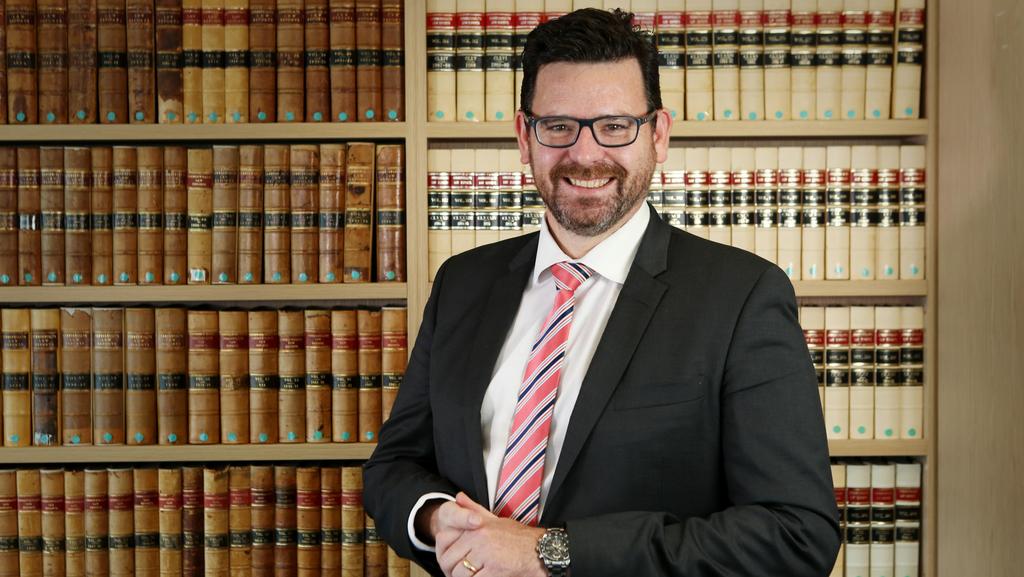
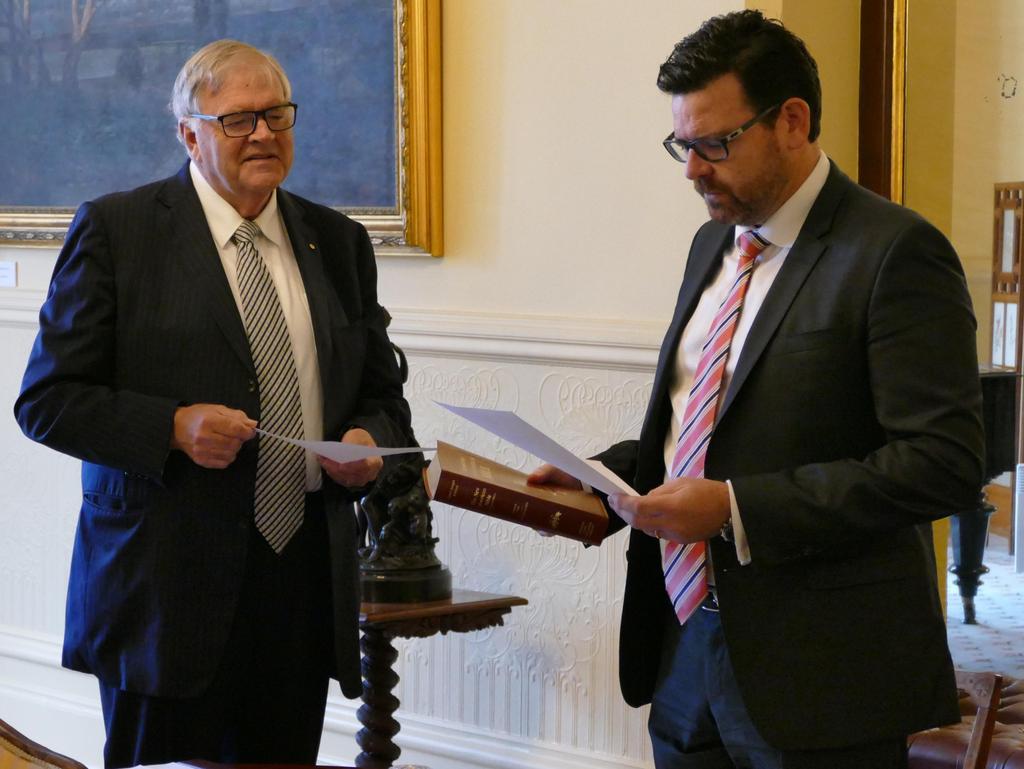

THE death in custody of young Aboriginal woman Ms Dhu is a case that will stay with WA’s new Chief Justice as a lesson of the need for people to listen to the stories and experiences of our most vulnerable and disadvantaged.
Peter Quinlan, the 48-year-old father of five who was officially sworn in last week as WA’s 14th Chief Justice, represented Ms Dhu’s mother and grandmother at a coronial inquest into her death.
The Coroner found Ms Dhu, who was being held in police custody over unpaid fines, suffered inhumane and appalling treatment.
Nearly everybody involved in the case unanimously agreed the system needed to do better and this couldn’t be allowed to happen again, he said.
“It was a real lesson for me in the way in which different parts of the community perceive and interact with the criminal justice system,” he said. “It showed me that ... it’s really important for people like me who have different life experiences to really listen carefully to what other people’s life experiences are.
“In many respects that inquest was an emotional confirmation of a lot of things that intellectually I already knew.”
Justice Quinlan, who like his predecessor Wayne Martin was appointed without having any experience on the bench, said his most immediate challenge would be “learning how to be a judge”.
He said he gave a lot of thought to taking on such a high-pressure, public role.
“I don’t think you’d be right for doing this job if you didn’t have some hesitancy or trepidation about doing it,” he said.
“I think it’s the kind of job that if you want to do properly and take seriously enough you have to be conscious of the fact that it’s difficult and you have to ask yourself whether you’re up to it or not.”
Justice Quinlan said a perception that the judiciary was soft on crime was not backed up by statistics that showed sentences handed out in WA were “uniformly fairly high”. He said people’s perceptions boiled down to the extent of information they had access to.
“I can well understand that sometimes people will read a very brief description of a case and an outcome and wonder how it could have occurred. Sometimes when I’m in that position I have exactly the same reaction,” he said.
On the State’s meth epidemic, he said it was a “huge health crisis” as well as a criminal justice problem.
“I think it’s a matter of the community understanding there’s a limit to what the courts can do. The courts are the final consumers of the problem in some respect, the solutions go back way in the process and a lot earlier,” he said.
As a lawyer of 25 years and the Solicitor-General for the past two years, he has been involved in many high-profile cases — as counsel assisting the Corruption and Crime Commission investigating the wrongful conviction of Andrew Mallard, and police tasering of Kevin Spratt, as well as providing advice to the State Government to order a second appeal of Scott Austic’s murder conviction.
He hoped there was general confidence in the justice system.
Justice Peter Damien Quinlan will start his new job as the Chief Justice of the Supreme Court of Western Australiaon 13th August 2018
From the Official Supreme Court of Western Australia Website
Chief Justice Peter Damien Quinlan was appointed to the Supreme Court of Western Australia on 13 August 2018. He was appointed as a judge of the Court, a judge of the Court of Appeal and as the Chief Justice of Western Australia. He graduated with a Bachelor of Commerce in 1992 and a Bachelor of Laws (Honours) in 1995 from the University of Western Australia. Chief Justice Quinlan was Professional Assistant to K H Parker AO QC, Solicitor General for Western Australia, from 1993 to 1994, and associate to the Hon Justice Parker, Supreme Court of Western Australia in 1995. From 1996 to 2001, he was a Legal Officer (and ultimately Assistant Crown Counsel) at the WA Crown Solicitor’s Office before joining the Independent Bar in 2001.
Chief Justice Peter Damien Quinlan was appointed Senior Counsel in 2010.
Chief Justice Peter Damien Quinlan was appointed Solicitor General for Western Australia on 1 July 2016 and served in this role until his appointment to the Bench.
Chief Justice Peter Damien Quinlan served as President of the WA Bar Association from 2012 to 2015, Board of Governors at the University of Notre Dame from 2008 and Director of the Law Council of Australia from 2012 to 2014.
Current Justices and Registrars of the Supreme Court of Western Australia as at 1st November 2021
Executive Assistant, Chief Justice's Chambers - Telephone: (08) 9421 5337
Email: Chief.Justice.Chambers@
Associate - Telephone: (08) 9421 5479
Email: Associate.Chief.
Email: Associate.Justice.
Email: Associate.Justice.
Email: Associate.Justice.
Email: Associate.Justice.
Email: Associate.Justice.
Email: Associate.Justice.
Email: Associate.Justice.
Email: Associate.Justice.
Email: Associate.Justice.Hall@
Email: Associate.Justice.
Email: Associate.Justice.
Email: Associate.Justice.
Email: Associate.Justice.
Email: Associate.Justice.
Email: Associate.Justice.
Email: Associate.Justice.
Email: Associate.Justice.
Email: Associate.Justice.
Email: Associate.Justice.Hill@
Email: Associate.Justice.Strk@
Email: Associate.Justice.
E-mail: associate.registrar.
E-mail: associate.registrar.
E-mail: associate.registrar.
E-mail: associate.registrar.
Email: associate.registrar.
Email: associate.registrar.
Email: associate.registrar.
Email: associate.registrar.
Justice Buss was appointed to the Supreme Court of Western Australia, including as a Judge of the Court of Appeal, on 1 February 2006, and was appointed as President of the Court of Appeal in July 2016.
He graduated with a Bachelor of Jurisprudence (Honours) and Bachelor of Laws (Honours) from the University of Western Australia and was admitted to practice in Western Australia in 1977.
He was a partner of a Perth law firm between 1982 and 1987. Justice Buss joined the Independent Bar in 1987 and was appointed a Queen's Counsel in December 1993.
Chambers may be contacted as follows:
Associate - Telephone: (08) 9421 5301
Email: This email address is being protected from spambots. You need JavaScript enabled to view it.
Justice Murphy was appointed to the Supreme Court of Western Australia on 28 April 2009 and as a judge of the Court of Appeal on 3 August 2010.
He graduated with a Bachelor of Laws and Bachelor of Economics from Sydney University.
He joined the Western Australian Bar Association in 1994 and was appointed Senior Counsel in WA in 2003.
His Honour practised principally in commercial, contractual and equity matters. Prior to being called to the Bar, he was a partner with a national law firm. He had also practised as a solicitor in Sydney and London in commercial litigation and international arbitration.
Chambers may be contacted as follows:
Associate - Telephone: (08) 9421 5344
Email: This email address is being protected from spambots. You need JavaScript enabled to view it.
Justice Mazza was appointed to the Supreme Court of Western Australia on 4 March 2010, and as a judge of the Court of Appeal on 16 December 2011.
He graduated with a Bachelor of Laws in 1980 from the University of Western Australia and was admitted to practice in 1981. His Honour practised predominantly in the area of criminal law.
In 2002, he was appointed as Deputy President of the Equal Opportunity Tribunal. In 2004, he was appointed a judge of the District Court of Western Australia.
Justice Mazza is the former President of the Australasian Institute of Judicial Administrators (AIJA). He is a trustee and governor of Notre Dame University Australia.
Chambers may be contacted as follows:
Associate - Telephone: (08) 9421 5387
Email: This email address is being protected from spambots. You need JavaScript enabled to view it.
Justice Mitchell was appointed to the Supreme Court of Western Australia in October 2014 and as a judge of the Court of Appeal in July 2016.
He graduated with a Bachelor of Jurisprudence in 1989 and a Bachelor of Laws in 1991 from the University of Western Australia. His Honour completed a Master of Laws, with distinction, at UWA in 1997.
In 1989, Justice Mitchell commenced work as Professional Assistant to the Solicitor General. He then completed articles with the Crown Solicitor, was appointed Assistant Crown Counsel in 1997, Senior Assistant Crown Counsel in 2000, and Deputy State Solicitor in 2008.
He was appointed Senior Counsel in 2007 and was acting Solicitor General from July 2011 to February 2012.
Justice Mitchell was a member of the Law Reform Commission from 2007 till 2011, a member of the Legal Practice Board and a member of the Legal Profession Complaints Committee.
Chambers may be contacted as follows:
Associate - Telephone: (08) 9421 5361
Email: This email address is being protected from spambots. You need JavaScript enabled to view it.
Justice Beech was appointed to the Supreme Court of Western Australia on 25 June 2007 and as a judge of the Court of Appeal on 24 May 2017.
He graduated with a Bachelor of Jurisprudence (Honours) in 1983 and a Bachelor of Laws (Honours) in 1984 from the University of Western Australia. He also graduated with a Bachelor of Civil Law (BCL) in 1988 from Oxford University, England.
He was an articled clerk and completed restricted practice at Northmore Hale (now Minter Ellison), joined Parker & Parker (now Freehills) from 1989 - 1991 and was a Crown Prosecutor with Office of Director of Public Prosecutions WA from 1992 - 1994.
He joined the Independent Bar in 1994 and was appointed Senior Counsel in 2004. Justice Beech was Editor of the Western Australian Reports from 1997 - 2002 and Consultant Editor from 2002 - 2007.
Chambers may be contacted as follows:
Associate - Telephone: (08) 9421 5459
Email: This email address is being protected from spambots. You need JavaScript enabled to view it.
Justice Pritchard was appointed to the Supreme Court of Western Australia on 11 June 2010 and appointed as a judge of the Court of Appeal on 13 September 2018.
Her Honour had previously served as Deputy President of the State Administrative Tribunal after her appointment to the District Court of Western Australia in June 2009.
Justice Pritchard graduated with a Bachelor of Laws (Honours) and a Bachelor of Arts from the Australian National University in Canberra and a Master of Laws degree (with Distinction) from the University of London. She also has a Graduate Diploma in Women's Studies from Murdoch University.
In 1991 Justice Pritchard joined the then Crown Solicitor's Office (now the State Solicitor's Office) and worked in that office until her appointment to the bench. Justice Pritchard also lectured and tutored in law at Western Australian universities at various times during the same period.
Chambers may be contacted as follows:
Associate - Telephone: (08) 9219 3101
Email: This email address is being protected from spambots. You need JavaScript enabled to view it.
Justice Vaughan was appointed to the Supreme Court of Western Australia on 30 April 2018.
He became a judge of the Court of Appeal on 4 June 2019.
He graduated from the University of Western Australia in 1992 with a Bachelor of Laws (Honours) and a Bachelor of Commerce, and was admitted to practice in Western Australia later that year.
Justice Vaughan became a partner in a national law firm in 1998 and joined the Independent Bar in 2007. His Honour was appointed Senior Counsel in 2013.
While a barrister Justice Vaughan practised principally in the areas of insolvency, commercial litigation and taxation.
Chambers may be contacted as follows:
Associate - Telephone: (08) 9421 5174
Email: This email address is being protected from spambots. You need JavaScript enabled to view it.
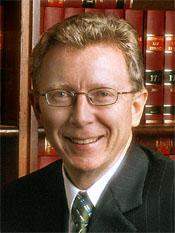
Justice Le Miere was appointed to the Supreme Court of Western Australia on 2 February 2004.
He was admitted to practice in Western Australia in 1978 and became a partner with Dwyer Durack in 1981. He joined the WA Bar Association in 1988 and was appointed Queen’s Counsel in 1993.
Justice Le Miere was a member of the Council of the Law Society from 1983 - 1991, and President of Law Society in 1989 and 1990. He was a Commissioner of the Law Reform Commission of Western Australia 1988 - 1992. He was a member of the Board of Perth Institute of Contemporary Art from 1993 to 1997.
Chambers may be contacted as follows:
Associate - Telephone: (08) 9421 5385
Email: This email address is being protected from spambots. You need JavaScript enabled to view it.
Justice Martin was appointed the Supreme Court of Western Australia on 20 March 2009.
He graduated from the University of Western Australia with a Bachelor of Jurisprudence (Honours) in 1976, and a Bachelor of Laws (Honours) in 1977. He was admitted to practice in Western Australia in 1978 after serving his articles with the law firm Parker & Parker.
His Honour served as associate to the late Sir Ronald Wilson AC, KBE, CMG, at the High Court of Australia during 1980 - 81.
Justice Martin completed a degree of Master of Laws at the University of London (reading in Restitution, Maritime Law, general Insurance and International Business Transactions) before returning to Parker & Parker in 1982, where he was a partner from 1984 and in-house counsel from 1989 - 1991.
He joined the Independent Bar at Francis Burt Chambers in 1992 and was appointed Queen's Counsel in 1997.
He was Editor of the West Australian Law Reports from 1985 - 1996, and Consulting Editor from 1997 - 2000. Justice Martin is a former President of the Law Society of WA (2001) and the Bar Association of WA (2005-2007). At the time of his appointment, he was the Treasurer and member of the Executive of the Law Council of Australia.
Chambers may be contacted as follows:
Associate - Telephone: (08) 9421 5196
Email: This email address is being protected from spambots. You need JavaScript enabled to view it.
Justice Hall was appointed to the Supreme Court of Western Australia on 3 July 2009. He graduated with a Bachelor of Jurisprudence and Bachelor of Laws from the University of Western Australia. In 1986 he joined the Office of the Commonwealth Director of Public Prosecutions in Perth and from 1991 - 1999 was Senior Assistant Director in its Commercial Prosecutions Branch.
His Honour joined the Independent Bar in Western Australia in 1999 practising in criminal, administrative, insolvency and company law as well as disciplinary tribunals and coronial inquests. He was appointed Senior Counsel in 2003.
Justice Hall appeared as Counsel Assisting in the Finance Brokers Royal Commission in 2001 and the Police Royal Commission in 2002 to 2003 and was retained in a similar role in a number of matters in the Corruption and Crime Commission.
Chambers may be contacted as follows:
Associate - Telephone: (08) 9421 5382
Email: This email address is being protected from spambots. You need JavaScript enabled to view it.
Justice Corboy was appointed to the Supreme Court of Western Australia on 19 April 2010.
He graduated from the University of Western Australia with a Bachelor of Economics (Honours) in 1973. Justice Corboy lectured in economics at Curtin University of Technology, Bentley, and was as a research associate and tutor at the University of Edinburgh in Scotland before returning to study law at UWA, graduating in 1980.
He was admitted to practice in 1980 and completed articles at Warren McDonald French and Harrison (now Norton Rose Australia).
Justice Corboy became a partner of the firm in 1982 and practised in criminal law and civil litigation, before joining Stone James (now Mallesons Stephen Jaques), becoming a partner in 1987.
He joined the Independent Bar in 1996 and was appointed Senior Counsel in 2002.
Chambers may be contacted as follows:
Associate - Telephone: (08) 9421 5401
Email: This email address is being protected from spambots. You need JavaScript enabled to view it.
Justice Allanson was appointed to the Supreme Court of Western Australia on 9 August 2010.
He graduated with a Bachelor of Jurisprudence, Bachelor of Laws & Master of Laws at the University of Western Australia. He was admitted to practice in Western Australia in 1981 and worked with the State Solicitor's Office until 1994, resigning as Senior Assistant Crown Solicitor.
His Honour joined the Independent Bar in 1994 and was appointed Senior Counsel in 2007.
Justice Allanson was a member of the Legal Practice Board from 2007 - 2010, and member then Deputy President of the Legal Profession Complaints Committee from 2007 - 2010.
Chambers may be contacted as follows:
Associate - Telephone: (08) 9421 5113
Email: This email address is being protected from spambots. You need JavaScript enabled to view it.
Justice Curthoys was appointed to the Supreme Court of Western Australia on 10 February 2014, after serving two and a half years as a judge of the District Court.
He graduated with a Bachelor of Jurisprudence (Honours) in 1978 and a Bachelor of Laws in 1979 from the University of Western Australia. He also graduated with a Bachelor of Arts from the University of Western Australia and a Master of Laws from Murdoch University.
Justice Curthoys was admitted to practice in Western Australia in December 1980. He completed his articles with Parker & Parker. His Honour left Parker & Parker in June 1984 and worked for Freshfields in London. In 1985 he returned to Perth and commenced practice at the Independent Bar. He was appointed to the District Court from John Toohey Chambers.
Justice Curthoys has written or edited books on: advocacy; wills, probate and administration; and civil procedure.
Chambers may be contacted as follows:
Associate - Telephone: (08) 9421 5110
Email: This email address is being protected from spambots. You need JavaScript enabled to view it.
Justice Tottle was appointed to the Supreme Court of Western Australia on 10 August 2015.
He studied law at the College of Law in London before being admitted as a solicitor in 1981. His Honour was an articled clerk at a firm of solicitors in Somerset, England, and following his admission to practice, he was a solicitor in London from 1981 - 1986.
Justice Tottle joined the firm of Robinson Cox after moving to Western Australia in 1986, later becoming a partner. In 1995, he founded Tottle Partners and remained at the firm until joining the Court.
Justice Tottle has served as a member of the Legal Practice Board of Western Australia, the Council of the Law Society of Western Australia and co-convenor of the Society's Education Committee.
Chambers may be contacted as follows:
Associate - Telephone: (08) 9421 5120
Email: This email address is being protected from spambots. You need JavaScript enabled to view it.
Justice Fiannaca was appointed to the Supreme Court of Western Australia on 31 August 2015.
He graduated from the University of Western Australia with a Bachelor of Jurisprudence in 1983 and a Bachelor of Laws in 1984 and was admitted to practice in Western Australia on 4 February 1985.
He joined the WA State Crown Solicitor’s Office in 1984 as an articled clerk and worked in that office, predominantly as counsel, until 1992. His Honour was appointed Assistant Crown Counsel in 1991.
From 1992 until his appointment to the bench, his Honour worked for the Office of the Director of Public Prosecutions for Western Australia, including roles as Consultant State Prosecutor, Acting DPP and Deputy DPP, a position he occupied from 2010. He was appointed Senior Counsel in 2005.
Chambers may be contacted as follows:
Associate - Telephone: (08) 9421 5311
Email: This email address is being protected from spambots. You need JavaScript enabled to view it.
Justice McGrath was appointed as a judge of the Supreme Court of Western Australia on 25 November 2016.
He graduated from the University of Western Australia (UWA) with a Bachelor of Arts (Honours) in 1986, and a Bachelor of Laws from the Australian National University in 1989. He completed a Master of Laws at UWA in 1996, before attending the London School of Economics in 1999, graduating with a Master of Laws (with Merit) in Public International Law & Criminal Law.
He joined Freehill, Hollingdale and Page in 1990, and was admitted to practice in Western Australia in 1991. Justice McGrath was associate to the Hon Justice Lee, of the Federal Court of Australia in 1992.
He was Principal Legal Officer/Senior Legal Officer for the Commonwealth Director of Public Prosecutions in Perth from 1993 – 1998, and Senior Assistant Director from 2000 until he joined the Independent Bar in March 2001.
Justice McGrath was appointed Director of Public Prosecutions for Western Australia in 2010, a position he held until his appointment to the Supreme Court. He was appointed Senior Counsel in 2011.
Chambers may be contacted as follows:
Associate - Telephone: (08) 9421 5180
Email: This email address is being protected from spambots. You need JavaScript enabled to view it.
Justice Archer was appointed to the Supreme Court of Western Australia on 29 May 2017.
Justice Archer is a former state prosecutor, Principal Counsel of Legal Aid WA and Acting Commissioner of the Western Australian Corruption and Crime Commission.
Her Honour joined the Bar in 2004 and was appointed as Senior Counsel in 2007. That same year, Justice Archer was chosen to conduct a statutory review of the Corruption and Crime Commission Act 2003 (WA).
Justice Archer has a keen interest in forensic advocacy and, in 2011, was selected by the Australian Bar Association to be a coach in an advanced advocacy course at Keble College in Oxford. In 2015, Her Honour was a coach in an advocacy course conducted in Singapore by the Singapore Law Society. She is also a regular coach in the Australian Bar Association’s advanced advocacy residential course.
Chambers may be contacted as follows:
Associate - Telephone: (08) 9421 5244
Email: This email address is being protected from spambots. You need JavaScript enabled to view it.
Justice Derrick was appointed to the Supreme Court of Western Australia on 6 March 2018.
Justice Derrick graduated from the University of Western Australia, with a Bachelor of Jurisprudence (Honours) in 1988 and a Bachelor of Laws in 1989. He was admitted to practice in 1991. He completed a Master of Laws with distinction at UWA in 1997.
His Honour was a Crown Prosecutor at the Office of the Director of Public Prosecutions from 1993 - 2001, then served as Assistant Crown Counsel for the Crown Solicitor's Office until 2002. He joined the Independent Bar in 2002 and was appointed Senior Counsel in 2009.
Justice Derrick was a judge of the District Court of Western Australia from 1 June 2010 until his appointment to the bench of the Supreme Court.
Chambers may be contacted as follows:
Associate - Telephone: (08) 9421 5142
Email: This email address is being protected from spambots. You need JavaScript enabled to view it.
Justice Smith was appointed as a judge of the Supreme Court of Western Australia on 27 June 2018, having been an acting judge since 1 August 2017.
She was also Acting President of the Western Australian Industrial Relations Commission (WAIRC) until 26 December 2018, having been appointed to that role on 17 October 2009.
Her Honour was awarded a Bachelor of Jurisprudence in 1984 and a Bachelor of Laws (Honours) in 1986 from the University of Western Australia.
She joined the Crown Solicitors Office in 1985 and remained with the Office until January 2000, after being appointed Senior Assistant Crown Counsel in 1997.
Justice Smith was appointed a Commissioner of the WAIRC on 10 January 2000, and Senior Commissioner on 21 November 2006.
Chambers may be contacted as follows:
Associate - Telephone: (08) 9421 5530
Email: This email address is being protected from spambots. You need JavaScript enabled to view it.
Justice Hill was appointed as a judge of the Supreme Court of Western Australia on 4 June 2019.
She graduated with a Bachelor of Science and Bachelor of Laws (Honours) from the Australian National University in 1992, and was admitted to practice in Western Australia in 1994.
She joined Bennett and Co as an articled clerk in 1994 and was promoted to partner in 2001. She joined Deacons (now Norton Rose Fulbright) as a partner in litigation and dispute resolution in 2005, remaining with the firm until 2015.
Before her appointment to the Court, her Honour was a partner in litigation and dispute resolution at Clifford Chance acting on disputes primarily in the energy and resources sectors.
Chambers may be contacted as follows:
Associate - Telephone: (08) 9421 5141
Email: This email address is being protected from spambots. You need JavaScript enabled to view it.
Justice Strk was appointed a judge of the Supreme Court of Western Australia on 1 July 2021.
Justice Strk graduated with a Bachelor of Laws (Honours) in 1997 from the University of Western Australia. She joined Dwyer Durack in 1998 as an articled clerk and was admitted to practice in Western Australia that year.
Her Honour joined Mallesons Stephen Jaques (now King & Wood Mallesons) in 2000, where she was a partner from 2011 to 2016. While a partner, her Honour practised principally in the areas of commercial litigation and insolvency.
Her Honour was appointed as the Principal Registrar of the Supreme Court of Western Australia on 1 August 2016 and is an experienced mediator. From August 2016, her Honour performed the role of Acting Master from time to time. Her Honour was appointed as an Acting Judge of the Court from 1 November 2018 to 30 June 2019.
Chambers may be contacted as follows:
Associate - Telephone: (08) 9421 5523
Email: This email address is being protected from spambots. You need JavaScript enabled to view it.
Justice Solomon was appointed a judge of the Supreme Court of Western Australia on 4 August 2021.
Justice Solomon graduated with a Bachelor of Laws (Honours) at the University of Western Australia and was admitted to practice in 1991.
His Honour was a solicitor then partner at two major firms where he worked on complex commercial matters including property, contracts, insolvency, building and construction, planning and trade practices. He also taught advocacy to junior barristers for the Western Australian Bar Association.
Justice Solomon joined the Independent Bar in 2006 and was appointed Senior Counsel in 2013.
Chambers may be contacted as follows:
Associate - Telephone: (08) 9421 5349
Email: This email address is being protected from spambots. You need JavaScript enabled to view it.
Current Masters of the Supreme Court of Western Australia as at 1st November, 2021
Master Sanderson was appointed to the Supreme Court in November 1996. He graduated from UWA with a Bachelor of Jurisprudence in 1974 and a Bachelor of Laws in 1975. He served his articles at Frank Unmack and Allen from 1976 and remained with them before heading to London in 1978.
On his return to Perth in 1981, Master Sanderson became a founding partner in Pullinger, Sanderson and Workman. He joined the Independent Bar in 1987.
Master Sanderson has served on the Law Society's council in a number of senior roles including treasurer and vice president.
Chambers may be contacted as follows:
Associate - Telephone: (08) 9421 5348
Email - This email address is being protected from spambots. You need JavaScript enabled to view it.
Former Judges and Masters of the Supreme Court of Western Australia
Former Judges of the Supreme Court of Western Australia
| Name | Period in Office | Notes |
|---|---|---|
|
BURT, Sir Archibald Paul, KT |
1861-1879 |
Chief Justice |
|
WRENFORDSLEY, Sir Henry Thomas, KT |
1880-1883 |
Chief Justice |
|
ONSLOW, Sir Alexander Campbell, KT |
1883-1901 |
Chief Justice |
|
STONE, Sir Edward Albert, KT |
1883-1901 |
Chief Justice 1901-1905 |
|
HENSMAN, Alfred Peach |
1892-1902 |
|
|
JAMES, John Charles Horsey |
1898 |
|
|
PARKER, Sir Stephen Henry, KT |
1901-1906 |
Chief Justice 1906-1913 |
|
MOOREHEAD, Frederick William |
1902 |
|
|
McMILLAN, Sir Robert Furse, KCMG |
1902-1913 |
Chief Justice 1914-1931 |
|
BURNSIDE, Robert Bruce |
1902-1929 |
|
|
ROOTH, John |
1906-1921 |
|
|
NORTHMORE, Sir John Alfred, KCMG |
1914-1931 |
Chief Justice 1931-1946 |
|
DRAPER, Sir Thomas Percy, CBE |
1921-1939 |
|
|
DWYER, Sir John Patrick, KCMG |
1929-1945 |
Chief Justice 1946-1958 |
|
WOLFF, Sir Albert Asher, KCMG |
1938-1959 |
Chief Justice 1959-1969 |
|
WALKER, James Leonard |
1946-1955 |
|
|
JACKSON, Sir Lawrence Walter, KCMGT |
1949-1969 |
Chief Justice 1969-1977 |
|
VIRTUE, Sir John Evenden, KBE |
1951-1975 |
|
|
NEVILE, Roy Vivian |
1955-1970 |
|
|
D'ARCY, Gordon Bede |
1959-1969 |
|
|
HALE, John |
1960-1973 |
|
|
NEGUS, Oscar Joseph |
1962-1969 |
|
|
BURT, Sir Francis Theodore Page, KCMG AC |
1969-1977 |
Chief Justice 1977-1988 |
|
LAVAN, Sir John Martin KT |
1969-1981 |
|
|
WICKHAM, John Leonard Clifton |
1969-1983 |
|
|
WALLACE, Alkin Robert Alexander AO |
1972-1991 |
|
|
JONES, Robert Edmund |
1973-1982 |
|
|
WRIGHT, George Dundas |
1975-1975 |
|
|
BRINSDEN, Peter Frederick |
1976-1990 |
|
|
SMITH, Charles Howard |
1977-1989 |
|
|
KENNEDY, Geoffrey Alexander AO |
1981-2001 |
|
|
OLNEY, Howard William |
1982-1988 |
Appointed to Federal Court |
|
PIDGEON, William Page AO |
1982-2001 |
|
|
ROWLAND, Barry William |
1983-1996 |
|
|
FRANKLYN, Edward Morrissey |
1984-1998 |
|
|
SEAMAN, Paul Laurence |
1988-1994 |
|
|
MALCOLM, David Kingsley AC |
1988-2006 |
Chief Justice |
|
NICHOLSON, Robert David AO |
1988-1994 |
Appointed to Federal Court |
|
WALSH, Terence Alan |
1988-1998 |
|
|
IPP, David Andrew AO |
1989-2002 |
Appointed to Court of Appeal NSW |
|
WALLWORK, Henry Albert |
1989-2002 |
|
|
MURRAY, Michael John AM |
1990-2012 |
|
|
ANDERSON, Robert John McArthur |
1990-2003 |
|
|
OWEN, Neville John |
1991-2010 |
|
|
WHITE, Kerry |
1992-2000 |
|
|
SCOTT, Graeme Frederick |
1992-2003 |
|
|
STEYTLER, Christopher David |
1994-2009 |
|
|
PARKER, Kevin Horace AO RFD |
1994-2003 |
International Criminal Tribunal for former Yugoslavia |
|
HEENAN, Desmond Charles |
1995-2000 |
|
|
TEMPLEMAN, Anthony John |
1996-2009 |
|
|
WHEELER, Christine Ann AO |
1996-2010 |
|
|
MILLER, Geoffrey Peter |
1998-2009 |
|
|
MCKECHNIE, John Roderick |
1999-2015 |
|
|
HASLUCK, Nicholas Paul AM |
2000-2010 |
|
|
ROBERTS-SMITH, Leonard William RFD |
2000-2007 |
|
|
PULLIN, Christopher James Lonsdale |
2001-2014 |
|
|
MCLURE, Carmel Joy AC |
2001-2016 |
|
|
HEENAN, Eric Michael |
2002-2015 |
|
|
BARKER, Michael Laurence |
2002-2009 |
Appointed to Federal Court |
|
JOHNSON, Narelle |
2003-2012 |
|
|
SIMMONDS, Ralph Lloyd |
2004-2016 |
|
|
Jenkins, Carolyn (Lindy) Frances |
2004-2020 |
|
|
BLAXELL, Peter Donald |
2005-2011 |
|
|
MARTIN, Wayne Stewart AC |
2006-2018 |
Chief Justice 2006 - 2018 |
|
NEWNES, David Wallace |
2007-2017 |
|
|
CHANEY, John Anthony |
2009-2018 |
|
|
EDELMAN, James Joshua |
2011-2015 |
Appointed to Federal Court |
|
MARTINO, Peter Dominic |
2015-2018 |
|
|
BANKS-SMITH, Katrina Frances |
2016-2018 |
Appointed to Federal Court |
Former Masters of the Court
| Name | Period in Office | Notes |
|---|---|---|
|
STONE, Alfred Hawes |
1861-1870 |
|
|
LOFTIE, Rowley Crozier |
1870-1878 |
|
|
COWAN, James |
1878-1889 |
|
|
MOSELEY, Francis Arnold |
1889-1920 |
|
|
SHERARD, Charles Allan |
1919-1921 |
|
|
DAVIES, Thomas Frederick |
1921-1939 |
|
|
BOYLSON, Gregory James |
1940-1967 |
|
|
STAPLES, Gordon |
1967 –1990 |
|
|
SEAMAN, Paul Laurence |
1983-1988 |
Appointed Supreme Court Judge |
|
WHITE, Kerry |
1988-1991 |
Appointed Supreme Court Judge |
|
NG, Mann Sau |
1988–1998 |
|
|
BREDMEYER, Theodore |
1990–2002 |
|
|
ADAMS, John Rennel |
1992-1996 |
|
|
NEWNES, David Wallace |
2003 – 2007 |
Appointed Supreme Court Judge |
Sir Francis Theodore Page Burt, AC, KCMG, QC (14 June 1918 – 8 September 2004) was an Australian jurist who served as the 11th Chief Justice of Western Australia, from 1977 to 1988, and the 27th Governor of Western Australia, from 1990 to 1993.
https://en.wikipedia.org/wiki/Francis_Burt
Burt was born in Cottesloe, a suburb of Perth Western Australia, and educated at Guildford Grammar School. He studied law at the University of Western Australia, and also served in the Royal Australian Navy and the Royal Australian Air Force during the Second World War. Burt was made a justice of the Supreme Court of Western Australia in 1969, and was promoted to Chief Justice in 1977. As Chief Justice, he served as lieutenant-governor. When the Governor of Western Australia, Gordon Reid, resigned in 1989, Burt was appointed to succeed him and served as governor until 1993.
Biography of Sir Francis Theodore Page Burt
Born in Mosman Park, Western Australia,[1] Burt's great-grandfather, Sir Archibald Burt, was Chief Justice of Western Australia from 1861 to 1879, while his grandfather, The Honourable Septimus Burt, was Attorney-General and Agent-General when responsible government was granted to Western Australia in December 1890. Archibald Burt had been a slaveholder in the West Indies. Burt was educated at Guildford Grammar School and later studied law at the University of Western Australia.[2] During the Second World War he served in the Royal Australian Navy and the Royal Australian Air Force.[3]
After being admitted to the Bar in 1941, Burt gained his skills as a Queen's Counsel in 1959, and in 1961 founded the independent Bar in Western Australia.[4] With others, he established Bar Chambers in 1962. He was appointed as a Justice of the Supreme Court of Western Australia in 1969, a position he held until 1977 when he was promoted to Chief Justice of Western Australia. He retired in 1988.
Burt was afforded a state funeral on his death in 2004. He is buried at Karrakatta Cemetery.[5] The Francis Burt Chambers located in Allendale Square, Perth, and the Francis Burt Law Education Centre and Museum in Stirling Gardens are both named in his honour.
References
- "Births". The West Australian. Perth, WA. 17 June 1918. p. 1. Retrieved 14 June 2019.
- ^ "Sir Francis Theodore Page Burt 1990–1993". Constitutional Centre of Western Australia. July 2005.
- ^ BURT, FRANCIS THEODORE PAGE (RAN) and BURT, FRANCIS THEODORE PAGE (RAAF) – World War II Nominal Roll. Retrieved 12 July 2012.
- ^ "Western Australian Bar Association". March 2006.
- ^ "Summary Of Record Information, Francis Theodore Page Burt". Metropolitan Cemeteries Board. Retrieved 24 October 2010.
Sir Francis Burt
FRANCIS BURT CHAMBERS
https://www.francisburt.com.au/francis-burt

Our chambers adopted the name Francis Burt Chambers in 1997, in recognition of Sir Francis Burt’s outstanding contribution to the administration of justice in Western Australia.
Sir Francis Theodore Page Burt AC KCMG QC was one of Western Australia’s preeminent jurists, having held the offices of Justice of the Supreme Court of Western Australia, Chief Justice of Western Australia and Governor of the State of Western Australia.
Prior to holding those offices, Sir Francis founded the Bar in Western Australia in 1961 and, with others, established Bar Chambers in 1962. In 1997, members of these chambers moved to change the name of Bar Chambers to Francis Burt Chambers in honour of his esteemed career.
Today, members of Francis Burt Chambers commit to observing the highest standards of conduct in the practice of the law, and upholding Sir Francis’ hallmark traits of integrity and independence.
Early Women Members
A beautiful sculpture of glass and steel stands with pride and strength in the reception area of Francis Burt Chambers. It was unveiled in 2021 to honour and recognise our early women members.
It is the work of Alessandra Rossi, who used a Japanese sword to carve the mould upon which the steel frame was constructed. She described the sculpture’s mix of steel and glass as representing a combination of strength and ‘something more delicate’.


Toni Kennedy and Val French
Francis Burt Chambers welcomed our first women members in 1975. Val French joined in April and Toni Kennedy in October.
Val French left chambers soon after and re-joined in December 1985 but, between October 1975 and 1983, Toni Kennedy was the only woman barrister in Perth.
Like many of our women members, both would go on to impressive judicial careers – Val French as a District Court judge and President of the Children’s Court, and Toni Kennedy who become the first woman to be appointed Chief Judge of the District Court of Western Australia.
They were the first of 26 women who would join Francis Burt Chambers over almost the first four decades.
They were courageous pioneers in what was often anything but a welcoming environment.
We thank them and honour their bravery, determination and perseverance.
Today women make up 40% of our members and we are all committed to improving equity for women at the Bar.
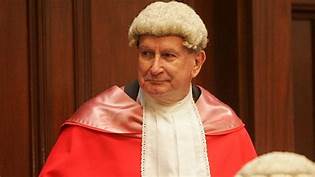
DavidKingsleyMalcolm-AC-QC_Ph1.jpg
David Kingsley Malcolm, AC, QC
WA Supreme Court Chief Justice of Western Australia
1988–2006
Born 6th May 1938 Bunbury, Western Australia
Died 20th October 2014 aged 76 in Perth Western Australia
Spouse: Karen Malcolm
Children: Manisha Malcolm
Preceded by Sir Francis Burt
Succeeded by Wayne Martin
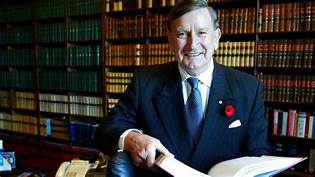
DavidKingsleyMalcolm-AC-QC_Ph2.jpg
David Kingsley Malcolm AC (1938-2014)28th October 2014
David Kingsley Malcolm AC, Honorary Fellow of Wadham since 2002, died in Perth on 20 October, 2014.
https://www.wadham.ox.ac.uk/news/2014/october/david-kingsley-malcolm-ac-1938-2014
David Malcolm came to Wadham on a Rhodes scholarship in Michaelmas Term 1960 from the University of Western Australia, to do the BCL (Bachelor of Civil Law).
He was a larger than life addition to the place in all senses. The Rugby XV was immediately and impressively augmented, and law undergraduates, already receiving tuition in Western Australian from Maurice Cullity on Staircase 1, were now able to get both tutorial preparation and post-operative autopsies in Western Australian at David’s desk in the Old Library (first bay on the left as you came in) which he had commandeered and commanded).
After the BCL he went into practice in WA and as a QC was occasionally and entertainingly at dinner in Wadham when he was appearing before the Privy Council. (The abolition of appeals to the Privy Council from Australia may well have been a positive move in all sorts of constitutional ways, but it was a sad loss to Oxford High Tables). In 1988 he was appointed Chief Justice of the Supreme Court of WA and in 1990 the State’s Lieutenant Governor. His tenure was marked in particular for the people of WA by a determination to make the court’s processes more transparent and he was most active off the Bench, both with tireless work for the Law Society of WA (which in its Obituary tribute picked up a phrase which was not new, in describing him as a ‘giant of the profession’) and in the wider community. In recognition of his many contributions to Australian life he became a Companion of the Order of Australia in 1992. He retired from the Bench in 2006 and became a Governor of the University of Notre Dame with great success.
He was much admired and respected for his warmth and his community involvement. A very typical story was of an address to students in which he told them to take their work seriously, to take any job they held seriously, but not to make the mistake of taking themselves too seriously. His health had suffered in his later years, but Wadham was lucky that he was able to come to speak at the memorial service to his former tutor, Peter Carter. He delivered a brilliantly judged tribute with a perfect balance of affection, respect and humour. It will long be remembered for the passage in which he said PBC would always be remembered as the man who had invented ‘intellectual terrorism’.
He died in Perth on 20 October 2014 and is survived by his wife Kaaren and daughter Manisha.
Written by Emeritus Fellow, Jeffrey Hackne
https://en.wikipedia.org/wiki/David_Malcolm
From www.wikipedia.org November 2021
David Kingsley Malcolm, AC, QC (6 May 1938 – 20 October 2014) was the Chief Justice of Western Australia from May 1988 until his retirement from the bench in February 2006.[1] He was also an expatriate justice of the Supreme Court of Fiji.
Born in Bunbury, Western Australia, Malcolm was educated at Guildford Grammar School in Perth and was awarded a Rhodes Scholarship in 1960. Malcolm was a graduate of the University of Western Australia.[2] He studied for his BCL at Wadham College, Oxford. Before serving as Chief Justice, Malcolm was a deputy counsel for the Asian Development Bank and one of Western Australia's most prominent Queen's Counsel. He regularly appeared before the Privy Council, and appeared as counsel on one of the last Australian appeals to the Privy Council before the Australia Act 1986 took effect. He was appointed Chief Justice of the Supreme Court on the retirement of the widely respected Francis Burt. In 1990 he also became Lieutenant-Governor of the state.
Malcolm earned great respect during his time as Chief Justice, and received great acclaim from the legal profession on his retirement on 7 February 2006. However, during his final year on the bench he came under increasing pressure, by the media, for perceived failings on the bench after he aborted a murder trial.[3]
At his farewell, the Attorney-General, Jim McGinty, commented on the landmark judgement that Malcolm had handed down in the appeal of John Button, a high-profile case in which a manslaughter conviction was quashed over 30 years after the event. Wayne Martin replaced Malcolm as Chief Justice, and Malcolm later became Professor of Law at the University of Notre Dame Australia, Fremantle.
Malcolm died in Perth in October 2014, aged 76.[4] The David Malcolm Justice Centre, a 33-storey skyscraper located on Cathedral Square in the Perth CBD, was named in his honour in 2016. The tower houses the civil arm of the Supreme Court and offices for the Department of the Attorney General and Department of Treasury.[5]
Perth’s CBD tower named after late WA Chief Justice David Malcolm
PERTH’S new 33-storey CBD tower will be named after one of the state’s most esteemed legal figures, the late Chief Justice of WA David Malcolm.
Eric Michael Heenan
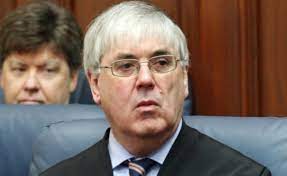
Eric Michael Heenan is a former justice of the Supreme Court of Western Australia, the highest ranking court in the Australian state of Western Australia.
He was educated at Aquinas College (class of 1962), and the University of Western Australia from which he graduated in 1966.
He left his father's firm E.M. Heenan & Co in 1983 to practise as a barrister. He was appointed Queen's Counsel in 1985.
He served as president of the WA Bar Association from 1990 to 1992, and as vice-president of the Australian bar association in 1992. He also served as a Commissioner of the Western Australian Supreme Court in 1990 and 1994.
From 1988 to 1994 he served as the deputy chairman of the Aquinas College Board.
He was appointed to the Supreme Court on 4 April 2002. He retired in 2015.
WA Supreme Court Justice Eric Heenan sees no reason to stand aside
A Supreme Court judge yesterday refused to step aside from the retrial of wealthy mining contractors Peter Bartlett and Ron Sayers despite defence lawyers attacking the way he summed up the case last year.
After more than two hours of legal argument over the complex tax fraud conspiracy case, Justice Eric Heenan said nothing had been presented to disqualify him. He put the wheels in motion for a new trial in August.
A jury of eight women and four men was unable to reach a verdict in November on charges that Mr Bartlett and Mr Sayers conspired to swindle the Commonwealth by signing backdated trust documents.
It was disclosed yesterday that lawyers for Mr Bartlett and Mr Sayers had recently written to the office of the Commonwealth Director of Public Prosecutions, Robert Bromwich, asking that the case be dropped.
Prosecuting barrister Paul Roberts said yesterday he had not seen the submission.
The alleged conspirators went on trial last year after a long investigation by the Australian Crime Commission into the links between Australian business figures and tax schemes.
The charges related to activities dating from 1999 to 2004. These included Mr Sayers and Mr Bartlett entering a $50 million tax minimisation scheme in 2000 to cover the 1999-2000 and 2000-01 financial years.
The alleged conspiracy related to backdated trust minutes created in 2002 after belated accounting work revealed a $7 million trust profit for 1998-99. Minutes and transactions were allegedly falsely created to move the income to 1999-2000, when the $50 million scheme was operating.
Commonwealth prosecutors alleged the backdating was done fraudulently to protect the tax minimisation scheme and to shield the Bartlett and Sayers family trust structures from attack by the tax office under anti-avoidance measures.
Mr Bartlett's barrister Chris Boyce told Justice Heenan yesterday that another motive was added by the judge in his summing up to the jury.
Mr Boyce said that added alleged motive was the men did not want to make a distribution in 1998-99 that would have attracted a higher rate of tax.
He said that leaving aside issues of unfairness, this could create reasonable concerns about the judge's impartiality in the mind of an ordinary observer of court proceedings.
However, Mr Roberts said the attack on Justice Heenan's summing up defied logic, ignored aspects of the prosecution case and lacked substance.
Mr Roberts said it was made abundantly clear that protection of the $50 million scheme was the main alleged objective of the alleged conspiracy but the other alleged objective was cutting the tax rate on the $7 million.
Justice Heenan said he aimed to give detailed reasons for not stepping aside at a directions hearing on April 28. The retrial is expected to run from August 5 to September 26.
I don't consider that anything has been demonstrated to require or justify disqualifying me. "Justice Eric Heenan
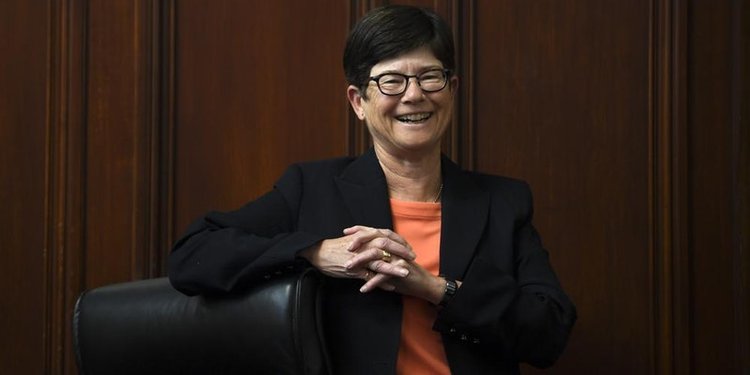
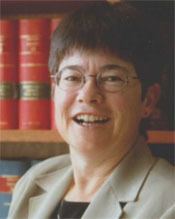
Carmel Joy McLure AC, QC is a former president the President of the Court of Appeal of the Supreme Court of Western Australia.
Legal Career of Carmel Mclure
https://alchetron.com/Carmel-McLure
McLure was born around 1955 in Perth, Western Australia, and was educated at St Joachim's and the University of Western Australia.
She commenced working for the Australian Attorney-General's Department in 1977 before being articled as a legal clerk in the 1980s. She became a partner in the firm later known as Corrs Chambers Westgarth in 1987 and took silk in 1997, appointed as a Queen's Counsel. McClure was a barrister until her appointment to the bench in 2001, as a judge of the Supreme Court of Western Australia. Appointed a member of the Court of Appeal in 2005, McLure was promoted as President in 2009. She retired in 2016. Michael Buss was appointed as her successor as President of the Court of Appeal.
In 2016 McLure was appointed a Companion of the Order of Australia for eminent service to the law and to the judiciary in Western Australia, to legal administration and professional development, and to the community through contributions to tertiary education and arts organisations
OPPORTUNITY, AUDACITY AND DIVERSITY - SOME CAREER TIPS
We heartily thank Carmel McLure for her visit to the Rotary of Elizabeth Quay and delivering such a great message. What a pleasure to listen to Her Honor!
The Honourable Justice McLure's career began at the University of Western Australia where she obtained a Bachelor of Jurisprudence with Honours in 1976 and a Bachelor of Laws with Honours in 1979.
On 23 April 2001, the Supreme Court welcomed Her Honour to the Bench. Carmel became a member of the Court of Appeal upon its inception in 2005 and was appointed as President of the Court of Appeal in November 2009. In June, 2016, Her Honour retired from the Bench.
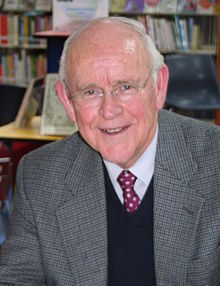
Hasluck started writing at school, producing poetry and essays for the school magazine and was first professionally published in 1964 with a poem appearing in Westerly literary magazine. [3]
Hasluck's books fall into two categories, which he describes as 'moral thriller genre and satire', with the thriller interesting him the most. [4] He cites the American writers William Faulkner, Saul Bellow, Norman Mailer and Gore Vidal as his main literary influences. [5]
In 2006, Hasluck became Chairperson of the Commonwealth Writers' Prize. He completed his term in 2011.
- 1984 - winner The Age Book of the Year Award Imaginative Writing Prize and Book of the Year The Bellarmine Jug
- 1987 - shortlisted Miles Franklin Award for Truant State
- 1991 - shortlisted Miles Franklin Award for The Country Without Music
- 1991 - joint winner Western Australian Premier's Book Awards for The Country Without Music
- 1999 - shortlisted Western Australian Premier's Book Awards for Our Man K
Novels
- Quarantine (1978)[6]
- The Blue Guitar (1980)
- The Hand That Feeds You (1982)
- The Bellarmine Jug (1984)
- Truant State (1987)
- The Country Without Music (1990)
- The Blosseville File (1992)
- A Grain of Truth (1994)
- Our Man K (1999)
- Dismissal (2011)[7]
- Rooms in the City (2014)
- The Bradshaw Case (2016)
Short story collections
- The Hat on the Letter 'O' and Other Stories (1978; revised edition 1990)
- Wobbling the Whiteboard (under the pseudonym "Kim Lee") (2003)
Poetry
- Anchor and Other Poems (1976)
- On the Edge (1981)
- A Dream Divided (2004)
Non-fiction
- Chinese Journey (1985) (with Christopher Koch)
- Collage: Recollections and Images of the University of Western Australia (1987), essays
- Offcuts From a Legal Literary Life (1993), essays[8]
- The Legal Labyrinth (2003)
- The Hasluck Banner (2006)
- Somewhere in the Atlas: The Road to Khe Sanh and Other Travel Pieces (2007)[9]
- Legal Limits (2013)
- Jigsaw: Patterns in law and literature (2018)
- Beyond the Equator: An Australian Memoir (2019)[10]
- Rollo's Way (2020)
Plays
- From M (1990)
Articles
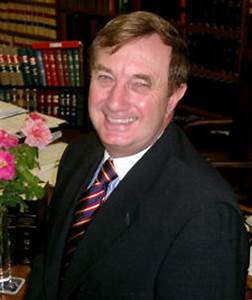
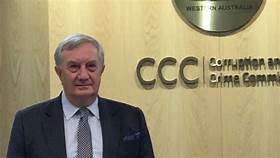

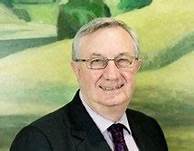
28 June 2021 – present
28 April 2015 – 28 April 2020
John Roderick McKechnie QC (born 1 November 1950) is the Commissioner of the Corruption and Crime Commission of Western Australia. He is a former Justice of the Supreme Court of Western Australia, the highest ranking court in the Australian State of Western Australia, and formerly served as the State's first Director of Public Prosecutions.
He attended Scotch College from 1963 until 1967, then graduated in law from the University of Western Australia in 1972. He then took articles with Jackson McDonald & Co, before joining the Crown Law Department. He became a Queens Counsel in 1989, and then in December 1991 was appointed by the Government of Western Australia as the state's first Director of Public Prosecutions. During his eight-year term in this role, the Department processed on average 2,500 prosecutions per year.
On 2 March 1999, he was sworn in as a justice of the Supreme Court of Western Australia.[1]
He retired from the Supreme Court on 22 April 2015 to take up an appointment as the Commissioner of the Corruption and Crime Commission.[2]
Corruption and Crime Commissioner
On 28 April 2015, McKechnie was first appointed as the Commissioner of the Corruption and Crime Commission for a five year term.[3][4] During his tenure, the Corruption and Crime Commission found that a State Parliamentarian had misused an electoral allowance.[5] McKechnie was involved in controversy following the expiration of his term as Commissioner on 25 April 2020, when his reappointment to the position was blocked by a bipartisan Parliamentary joint standing committee.[6][7] In June 2021, the Western Australian Parliament passed legislation reappointing McKechnie as Commissioner without requiring the agreement of the joint standing committee,[6] to take effect on 28 June 2021.[7]
References
- Supreme Court of Western Australia (25 February 1999). "New Judge Sworn In (media release)". Retrieved 10 May 2007.
- ^ "Farewell to the Honourable Justice McKechnie" (PDF). SupremeCourt.wa.gov.au. 22 April 2015. Retrieved 13 December 2018.
- ^ "Supreme Court judge appointed to head WA corruption watchdog". ABC News. Australian Broadcasting Corporation. 1 April 2015. Retrieved 26 June 2021.
- ^ "Government appoints new CCC Commissioner". Media Statements. Government of Western Australia.
- ^ "Strippers, yachts and lunches with the 'Black Hand Gang' all part of MP's allowance 'abuse'". ABC News. Australian Broadcasting Corporation. 17 December 2019. Retrieved 26 June 2021.
- ^ Jump up to:a b Hastie, Hamish (15 June 2021). "McKechnie's reappointment to CCC 'tainted' by efforts to get him there, opposition says". WAtoday. Nine Entertainment Co. Retrieved 26 June 2021.
- ^ Jump up to:a b "John McKechnie QC reappointed CCC Commissioner". Media Statements. Government of Western Australia. Retrieved 26 June 2021.
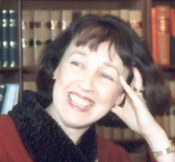
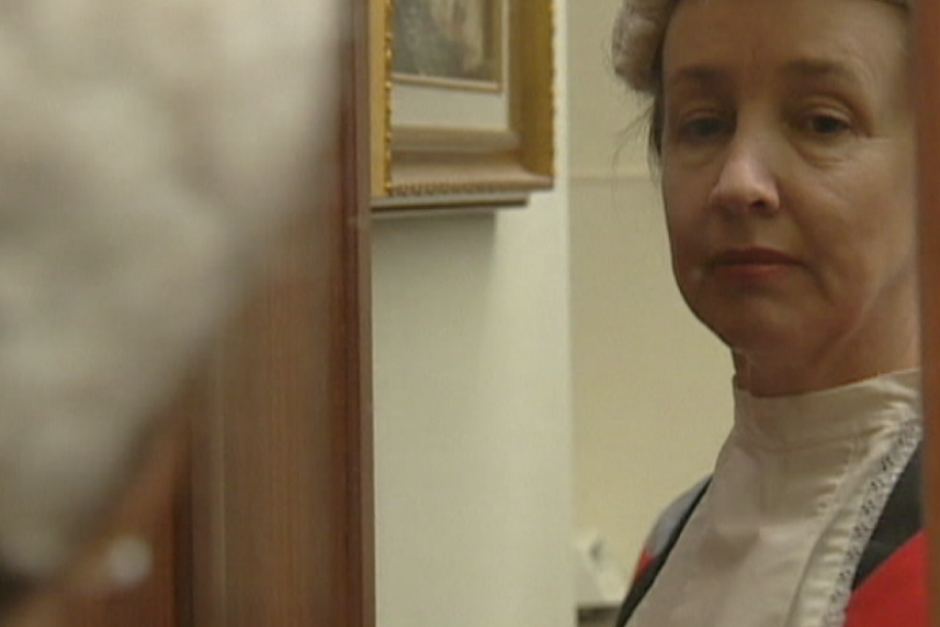
CHRISTINE Ann WHEELER AO was the First female Justice of the Supreme Court of Western Australia
- Admitted as a legal practitioner 1980
- First woman appointed QC in Western Australia 1994
- First female Justice of the Supreme Court of Western Australia 1996-2004
- Justice of the Court of Appeal 2004-2010
- Pro-Chancellor of the University of Western Australia 2001-2005
Early life and education
Wheeler was educated at Kent Street Senior High School in Perth, and graduated from the University of Western Australia in 1975 with a Bachelor of Jurisprudence. She studied for a Master of Laws at the London School of Economics, before returning to Perth to complete her Bachelor of Laws in 1980.[1][4]
Career
She served as an Assistant Crown Solicitor from 1984 to 1988, heading the Policy and Law Reform Unit. From 1988 to 1994 she held the positions of Senior Assistant Crown Solicitor and Senior Assistant Crown Counsel.[5] In 1994 Wheeler was a part-time Judicial Registrar of the Industrial Relations Court of Australia.
She took silk in 1994, becoming the first woman in Western Australia to be appointed as a Queen's Counsel. She sat as a Commissioner in the District and Supreme Courts of Western Australia in 1995 and 1996.
Supreme Court
Wheeler was appointed to the bench on 30 October 1996, becoming the first female Justice of the Supreme Court of Western Australia.
In 2003 Justice Wheeler was one of the three judges of the Court of Criminal Appeal of the Supreme Court of Western Australia who took just ten days to reject the appeal of Andrew Mallard, who had been convicted of murder.[6] In 2005 the High Court of Australia set aside this decision.[7]
In 2005 Justice Wheeler was made a judge in the Supreme Court's Appellate Court.[2]
Outside law, Wheeler was Pro-Chancellor of the University of Western Australia from 2001 to 2005.
She was made an Officer of the Order of Australia in the 2013 Australia Day Honours.
See also
First women lawyers around the world
References
- Offer, Kate. "The Judges of Western Australia: Part II" (PDF). (1998) 27 University of Western Australia Law Review 248.
- ^ Jump up to:a b "The Hon. Justice Christine Ann Wheeler". Supreme Court of W.A. Retrieved 9 March 2009.
- ^ Farewell to the Honourable Justice Wheeler, Supreme Court of Western Australia, 25 February 2010.
- ^ "Christine Wheeler (1980)". University of Western Australia Faculty of Law. Retrieved 20 June 2012.
- ^ Wallace, Anne (editor) (November 2003). "Christine Wheeler" (PDF). AIJA News. 16 (3). Archived from the original (PDF) on 1 March 2011.
- ^ Taylor, Robert (12 October 2006). "Mallard case rocks WA justice". The West Australian. Retrieved 1 April 2009.[dead link]
- ^ Mallard v the Queen [2005] HCA 68, (2005) 224 CLR 125 (15 November 2005), High Court.
Law School
Kevin Horace Parker (1959)
Judge of the International Criminal Tribunal
Admitted as a legal practitioner 1960
QC 1977
Solicitor-General for Western Australia 1979-1994
Justice of the Supreme Court of Western Australia 1994-2003
Judge of the International Criminal Tribunal for the former Yugoslavia 2003-2011
Vice-President of the International Criminal Tribunal 2005-2008
https://www.law.uwa.edu.au/alumni/graduates/1950s/parker
https://www.abc.net.au/am/stories/s42613.htm
AM Archive - Tuesday, 10 August , 1999
Reporter: Lisa Stingel
LISA STINGEL: On Father's Day 1997, 14-year-old James Godden was riding his trail bike in bushland. His body was found three days later in a creek bed. The Supreme Court was told James had suffered an agonising death over a prolonged period at the hands of Richard Leatch and his fiance, Tammie Sherratt.
In sentencing Leatch, Justice Kevin Parker pointed to the anguish and terror which must have been felt by James, but added that he could have suffered a far worse fate. Those comments have prompted an angry response.
The State Opposition's Justice spokesman Jim McGinty:
JIM MCGINTY: I find it hard to try and imagine a worse murder than that of an innocent 14-year-old who was tortured sadistically and then murdered in diabolical circumstances. And for the judge to say that the victim could have faced a far worse fate, I just find unbelievable.
LISA STINGEL: What do you think the judge meant when he said that James Godden could have suffered a worse fate?
JIM MCGINTY: I've got no idea what the judge meant. But for me it's very hard to try and imagine what those circumstances might be. No 14-year-old riding his trail bike in completely innocent circumstances could have possibly expected to be confronted with what James Godden confronted. The story that was told to the court was absolutely harrowing.
LISA STINGEL: The couple who murdered James Godden were armed with a sword and a tomahawk. A rope was tied around the teenager's neck, he was strangled and his heart was torn when one of his killers trod on his back. The court was told his torment was prolonged, and the motivation was the couple wanted to steal his trail bike.
Despite the torture, Justice Parker said there could have been circumstances which could have made James's death far more harrowing, and at least he was spared some of those possibilities.
Labor's Jim McGinty says the community has a right to be upset by the comments. But he's concerned there could be demands for tougher sentencing.
JIM MCGINTY: Judges are often criticised for being out of touch with thinking in the community. That makes the job of legislators so much harder when dealing with the often cries of the community for ever tougher penalties. I think that judges in some occasions bring it on themselves, and I think that that's unfortunate and I think this comment will go down as one of those comments from a judge that really do not help the cause.
COMPERE: Jim McGinty, Labor's Justice spokesman in Western Australia.
KEVIN HORACE PARKER'S lenient sentences for what has been dubbed the Vukovar Trio has incensed many in Croatia, but also international war crimes experts and the Hague prosecution
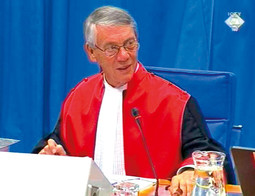
On 8 December 2003 Parker was sworn in as a judge of the International Criminal Tribunal for the former Yugoslavia. After David Hunt and Ninian Stephen, he is the third Australian judge at the Hague tribunal. Parker's colleagues at the Supreme Court of Western Australia said their farewells to him in mid November of 2003. He was at the time not accessible to the media. He made a short announcement in which he stated that it would be tough for him to be separated from his family and wife Joan. At a special session open to the press, David Malcolm, the President of the Supreme Court, said that Parker had made a significant contribution to the legal system in Western Australia. Among other things, he said that he was esteemed for his wisdom, common sense, legal skill and excellent knowledge of the law.
Some of the lawyers who have met Parker in the Hague's trial chambers are not impressed by him. They say that he often comments the proposals of counsellors for the defence and prosecution with a measure of irony and sarcasm, which they do not appreciate, as they feel that judges should refrain from those kinds of comments. And while that may not say much about Parker's qualities as a judge, it is hard to rid oneself of the impression that few in Croatia would these days agree with the choice of words David Malcolm, the head of the Supreme Court of Western Australia, has graced Parker,
http://arhiva.nacional.hr/en/clanak/38490/kevin-parker-the-judge-who-freed-the-villains-of-vukovar
EPILOGUE TO THE TRIAL OF THE OVCARA EXECUTIONERS
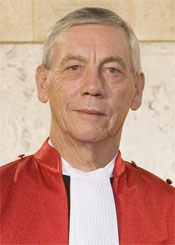
Judge Kevin Horace Parker –
The judge who freed the villains of Vukovar
Judge Kevin Horace Parker –
The judge who freed the villains of Vukovar
KEVIN HORACE PARKER'S lenient sentences for what has been dubbed the Vukovar Trio has incensed many in Croatia, but also international war crimes experts and the Hague prosecution
"I am aware that my appointment will be a challenge, but it at the same time represents a very important assignment that must be carried out. The Hague tribunal has a vital role in helping maintain order in the international community and in bringing justice to the people of the former Yugoslavia", said Kevin Horace Parker, when he learned on 14 November 2003 that he would become a permanent judge of the International Criminal Tribunal for the former Yugoslavia in the Hague. Not quite four years later, reading the initial verdict, for Mile Mrksic, Veselin Sljivancanin and Miroslav Radic, officers of the Yugoslav People's Army (JNA) indicted for war crimes in Vukovar, Kevin Horace Parker did not bring justice for Croatia and the families of the 264 victims who were, on 20 November 1991, tortured and executed by JNA-aided Serb insurgents.
Kevin Horace Parker has found himself in the centre of attention after he and his colleagues in the judicial council acquitted Miroslav Radic of charges of war crimes committed at Ovcara in Vukovar, sentenced Veselin Sljivancanin to only 5 years, and Mile Mrksic to 20 years in prison. This epilogue to the trials of the Vukovar executioners has angered and dismayed many in Croatia. Veteran's associations have organised a series of protests, and the HSP party has launched the signing of a petition for a referendum at which citizens would say whether Croatia should suspend the Constitutional Act on Cooperation with the Hague Tribunal.
Parker's ruling has also shocked Hague Chief Prosecutor Carla Del Ponte and her associates, who had sought life sentences for the accused, and they immediately announced their intention to appeal the ruling. Especially consternated was Clint Williamson, the US Ambassador for War Crimes, who was present at the reading of the verdict. Williamson served as a Hague prosecutor, led the investigation in Vukovar, oversaw the exhumations at Ovcara and prepared the initial indictments in this case. Williamson is now a high-ranking official in the US administration, and he had previously on several occasions made statements regarding his personal conviction in the strength of the evidence in this case. That is why it comes as no surprise that this ruling gave him cause for consternation.
The verdict read by Kevin Horace Parker revealed that the Hague Prosecution has made several cardinal mistakes in drafting the indictment, but it demonstrated above all that this Australian judge, together with Krister Thelin and Christine van den Wyngaert, his colleagues in the judicial council, did not manage to, or were not willing to understand the nature of the conflict in Vukovar and in Croatia during the Homeland War, nor the relationship between the JNA and the local paramilitary units, who acted in complete coordination in the ravaging of Croatia, and in the torture and killing of the surviving and captured defenders of Vukovar. Parker is reputed as being one of Australia's best judges. Krister Thelin is a Swedish judge who furthered his education at the US's prestigious Harvard University, and who served at the post of Sweden's deputy justice minister at the time of the Vukovar tragedy. In the 1990s he also worked in Bosnia & Herzegovina on setting up a post-Dayton regulatory agency and on the cooperation of first-instance courts in Bosnia & Herzegovina with the Stability Pact. Before coming to the Hague tribunal Christine van den Wyngaert taught criminal and criminal procedural law at the Belgian University in Antwerpen.
Many lawyers, domestic and international politicians, including Peter Galbraith, the former US Ambassador to Croatia, have told Nacional that the most disgraceful part of the controversial verdict is Parker's verdict of a 5-year prison term for Veselin Sljivancanin. Most say that a 5-year prison sentence can be handed down for a serious property-related crime, but by no means for a war crime, no matter how the judicial council endeavours to account for Sljivancanin's role in the events that took place in Vukovar.
In the introductory part of the reading of the verdicts for Mrksic, Sljivancanin and Radic, Parker pointed out that they were not on trial for the devastation and other atrocities that took place in Vukovar in 1991, but only for the tragedy that struck down 264 captured Croatians, which Serbian insurgents, abetted by the JNA, executed at Ovcara. Some parts of the verdict that Parker read to the accused are, for the public, at the very least contradictory and debatable.
This is how Parker explained why the claims of the Hague prosecution that the trio joined forces in a criminal undertaking do not stand: "In essence it is claimed that the three accused acted together to abuse and kill prisoners of war from Vukovar Hospital. There is no direct evidence that would corroborate such a claim, even though such a view could be suggested on the basis of an incomplete understanding of some of the events that took place on 20 and 21 November 1991 and on the basis of isolated parts of the evidence."
Parker sentenced Sljivancanin to 5 years in prison because he could have called for additional JNA troops at Ovcara, in order to protect the prisoners of war from torture and the abuses of paramilitary formations, which he did not do. Parker said that the murders were committed during the night after the JNA withdrew on Mile Mrksic's command, which exonerated Sljivancanin of any further responsibility for what was done to the prisoners afterwards.
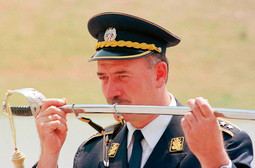
In spite of this they consider Sljivancanin responsible for not securing additional protection for the prisoners while the JNA was present at Ovcara. Many of the prisoners died of wounds and injuries they received after being beaten by members of the paramilitary formations, from whom Sljivancanin's soldiers did not provide adequate protection. And although the number of prisoners of war who died this way can only be surmised, only a single death of this kind would be enough for a sentence greater than 5 years in prison. Some of the lawyers with whom Nacional spoke say that Sljivancanin was in effect acquitted, because he received a symbolic prison term, which he has on the day the ruling was handed down, almost entirely served in Hague detention. Some lawyers see Sljivancanin's sentence as a reflection of Parker's hypocrisy and his feigned ignorance of the real situation on the ground during the agony of Vukovar in 1991.
The judicial council presided by Parker did not believe the witnesses who implicated Miroslav Radic. In his rationale of the ruling, Parker said that two witnesses had provided quite different testimony that indicated that Radic was aware that the soldiers under his command had taken part in the torture and killing of prisoners of war at Ovcara. Parker also said that one witness had indicated that Radic was aware of the events at Ovcara. This is how Parker dismissed the testimony that implicated Radic: "The judicial council did not accept the first two witnesses as sincere, nor the third as trustworthy."
In the written verdict it will be explained why Parker and his colleagues do not believe that Radic knew of or had reason to know that soldiers under his command had committed crimes at Ovcara. Mile Mrksic received a prison sentence of 20 years, because Parker and his colleagues consider him responsible for the JNA's withdrawal from Ovcara, which opened the way for the murder of prisoners of war. Many at the Hague tribunal do not agree with the severity of the punishment, considering it overly lenient. Parker found grounds for it in the fact that a greater sentence could not have been handed down at the time in Croatia.
All of this gives additional justification to the vehement reactions in the Croatian public and national leadership that followed Parker's address to the accused. Parker has already in the rationale of the first-instance ruling coolly given a technical explanation of why Sljivancanin had minimal responsibility, and why Radic is completely innocent of the tragedy of those who fell at Ovcara. From what he said of Radic it almost appears as if Radic had found himself in Vukovar by mistake, and not of his own volition. None of the three indicted, however, were common soldiers, who could perhaps in their situation before the Hague tribunal say that they were on the front against their own will. They were professional soldiers, who considered the people of Vukovar and the defenders of Vukovar to be the destroyers of Yugoslavia, and that is why they acted in coordination with the paramilitary formations of the Serb insurgents in their crimes before and after the occupation of Vukovar.
This was very quickly after the tragedy at Ovcara confirmed by the affirmation of Croatian independence, and by a series of events in the contemporary political history of Croatia and of the countries that emerged with the dissolution of the former Yugoslavia. That is why it is hard to dismiss those who say that Kevin Horace Parker by his ruling, , in this case only fuelled those who say that the tribunal is subject to various political influences.
The verdict, for the murders at Ovcara was not the first of Parker's rulings that considerably exculpated those accused of the ravaging of Croatia during the Homeland War. Parker was also the judge in the trial of Pavle Strugar, who was in October of 1991 appointed commander of the 2nd operative group that the JNA had formed to lead the military campaign in the Dubrovnik area. Strugar faced 6 charges in the indictment drafted by the Hague prosecution. Strugar was in that trial on 31 January 2005 sentenced to 8 years in prison, but he received the sentence after Parker had dismissed those charges that accused Strugar of murder, brutality, destruction not warranted by military necessity and illegal attacks against civilian targets. There is no need to explain in detail the destruction of Dubrovnik, as the pictures of the destruction of the old town core had shocked the world. In spite of this, Parker did not consider the top JNA commander responsible for illegal attacks against civilian targets.
A truly strange perception of justice for one of the best judges in Australia. Kevin Horace Parker was born on 6 February 1937 in Kalgoorlie, Australia. He was educated at Perth Modern School and at the University of Western Australia. He graduated law in 1959. He started working as a lawyer a year later, and in 1977 he received the title of "Queen's Counsel". He became a judge of the Supreme Court of Western Australia in 1994. Parker served from 1967-71 as the senior assistant to the State Attorney of Western Australia, and subsequently as the Chief State Attorney of Western Australia from 1972-74. He was also active in international waters. On three occasions he worked as legal counsel and representative of the Australian states in the Australian delegation to the UN Commission for Maritime law. He was also a member of the Australian delegation to the UN Commission for international commercial law and a member of the Australian negotiation team in the talks on the maritime border between Australia and Indonesia (1985-95). In 1989 Parker was awarded the title of Officer of the Order of Australia in recognition of his role in the Australia Acts of the Commonwealth of Australia and the United Kingdom, and in the adoption of legislation on the jurisdiction of courts in the Commonwealth communities, states and territories of Australia.
On 8 December 2003 Parker was sworn in as a judge of the International Criminal Tribunal for the former Yugoslavia. After David Hunt and Ninian Stephen, he is the third Australian judge at the Hague tribunal. Parker's colleagues at the Supreme Court of Western Australia said their farewells to him in mid November of 2003. He was at the time not accessible to the media. He made a short announcement in which he stated that it would be tough for him to be separated from his family and wife Joan. At a special session open to the press, David Malcolm, the President of the Supreme Court, said that Parker had made a significant contribution to the legal system in Western Australia. Among other things, he said that he was esteemed for his wisdom, common sense, legal skill and excellent knowledge of the law.
Some of the lawyers who have met Parker in the Hague's trial chambers are not impressed by him. They say that he often comments the proposals of counsellors for the defence and prosecution with a measure of irony and sarcasm, which they do not appreciate, as they feel that judges should refrain from those kinds of comments. And while that may not say much about Parker's qualities as a judge, it is hard to rid oneself of the impression that few in Croatia would these days agree with the choice of words David Malcolm, the head of the Supreme Court of Western Australia, has graced Parker.
A LENIENT SENTENCE FOR STRUGAR
Parker served as judge in the trial of Pavle Strugar, who commanded the JNA attack on Dubrovnik in 1991. He was charged with murder, brutality, attacks against civilians, devastation not justified by military necessity, illegal attacks against civilian targets, and the destruction or deliberate damaging of churches and monasteries, humanitarian, educational and scientific institutions, artistic and historical monuments and works of art and science. Parker dismissed the points of the indictment that charged Strugar with murder, brutality, devastation and illegal attacks against civilian targets, and sentenced him to eight years in prison.
WAR CRIMES
Šljivančanin to serve 17-year Ovčara sentence in Slovakia
- Autor: Radio.net
- Zadnja izmjena 21.12.2009

The ICTY trial chamber sentenced Sljivancanin for having killed the Croatian soldiers and civilians at Ovcara where they were brought from the Vukovar hospital to five years in prison, however, the appeals chamber ruled 17 years' imprisonment for the murder of 200 victims at Ovcara on 20 November 1991.
The other convict in the case labelled as the "Vukovar Troika", JNA officer Mile Mrksic was given 20 years.
The third defendant from the case, Miroslav Radic, also a JNA member, was acquitted.
The Hon Kevin Parker AC is a former Vice-President and Trial Chamber President of the International Criminal Tribunal for the former Yugoslavia (ICTY) in The Hague.
He will provide an insider’s view of International Criminal Courts and their problems from an Australian perspective.
Among others, he will look at the problem of National Sovereignty, its influence on the selection of Judges and the evidence and procedures used, and its consequences for the International Criminal Court and the enforcement of International Criminal Law. The Hon Kevin Parker AC was admitted as a Legal Practitioner in 1960. He was the Chief Crown Prosecutor in Western Australia from 1971-1974. He was appointed Queen’s Counsel in 1977 and was the Solicitor-General for Western Australia from 1979-1994. From 1994-2003, he was a Judge of the Supreme Court of Western Australia. From 2003-2011, he was a Permanent Judge of the UN War Crimes Tribunal (ICTY) in the Hague, Vice-President from 2005-2008 and Presiding Judge Trial Chamber II from 2008-2011. He was appointed an Officer of the Order of Australia in 1989, and Companion of the Order of Australia in 2008 for service to International Law. He was elected a Fellow of the Australian Academy of Law in 2013.
This is a free event.
Please RSVP by no later than Friday 17 June 2016.
The views expressed in this event are those of the presenter and do not necessarily represent the views of The Australian National University.
Telephone enquiries 02 6125 0454
Email enquries This email address is being protected from spambots. You need JavaScript enabled to view it.
Upcoming events
www.law.anu.edu.au/events
Judicial Recommendation Report No 1 of 2019
https://www.wa.gov.au/government/publications/judicial-recommendation-report-no-1-of-2019
Report of the Salaries and Allowances Tribunal
Published 27 November 2019
Remuneration of Judges, District Court Judges, Masters of the Supreme Court, Magistrates and the Parliamentary Inspector of the Corruption and Crime Commission
Provided by Salaries and Allowances Tribunal
Contact
Part 1: Remuneration
Part 1: Remuneration
1.1 Remuneration shall be payable at the following rates to Judges, Masters and Magistrates with effect from 1 July 2019.
1.2 The annual salary specified in this Part is inclusive of leave loading.
| POSITION | ANNUAL SALARY |
|---|---|
| Chief Justice | $508,591 |
| President of the Court of Appeal | $476,012 |
| Senior Puisne Judge | $454,511 |
| Senior Judge of the Court of Appeal | $454,511 |
| Puisne Judge | $441,057 |
| Senior Master of the Supreme Court | $408,726 |
| Master of the Supreme Court | $396,951 |
| Chief Judge District Court | $441,057 |
| Senior Judge District Court | $408,726 |
| Judge District Court | $396,951 |
| Chief Magistrate | $396,951 |
| Deputy Chief Magistrate | $347,952 |
| Principal Registrar/Magistrate Supreme Court * | $347,952 |
| Principal Registrar/Magistrate, Family Court * | $347,952 |
| Magistrates | $327,484 |
| Registrars/Magistrates Family Court * | $327,484 |
| Parliamentary Inspector, Corruption and Crime Commission | $176,422 |
* These office holders hold commissions to be Magistrates while holding the offices of Registrar or Principal Registrar.
Part 2: Travelling and Accommodation Allowances
Part 2: Travelling and Accommodation Allowance
2.1 When an overnight stay away from home is involved, a travelling and accommodation allowance (inclusive of accommodation, meals and incidentals) shall be payable in accordance with the relevant Australian Taxation Office reasonable benefit limit applicable from time to time and where accompanied by certification that the expense was appropriately incurred.
2.2 If reasonably and properly incurred travelling and accommodation expenses exceed the rate specified in 2.1, then actual costs should be reimbursed. Receipts or vouchers must be provided in support of any claim for reimbursement in excess of the specified rate.
2.3 Claims for overnight stays in the Perth metropolitan area should be subject in each case to the approval of the relevant Chief Judicial Officer.
2.4 Part payment of travelling and accommodation allowances shall apply in the following circumstances:
- When the Judge, Master or Magistrate is accommodated in private, non-commercial accommodation, such as the home of a family member or friend, a rate of one third of the specified rate shall be payable.
- When the cost of commercial accommodation is met by an entity other than the Judge, Master or Magistrate, an allowance shall be payable in accordance with the relevant Australian Taxation Office reasonable benefit limit for meals and incidentals applicable from time to time and where accompanied by certification that the expense was appropriately incurred.
- When in the case of commercial accommodation referred to in 2.4.b above, the cost of a meal or meals is met by an entity other than the Judge, Master or Magistrate, the amount of travelling allowance shall be reduced by the relevant amount(s) referred to in the preceding paragraph.
Part 3: Motor Vehicles
Part 3: Motor Vehicles
3.1 The following arrangements apply or continue to apply, as the case may be, to each Judge, Master and full-time Magistrate for the provision of a fully maintained motor vehicle for business and private use.
3.2 All vehicles (being part of the Government-owned State Fleet) should be managed in accordance with the policies and conditions established and amended from time to time by the Department of Finance (the effective owner of the State Fleet). Applicable terms and conditions are currently set out in the document "State Fleet - Agency General Agreement".
3.3 Selection of appropriate vehicles should be subject to consultation between the Department supporting the Courts administratively (as the "Agency" responsible for managing the leasing arrangements for vehicles provided to Judges, Masters and Magistrates) and the relevant Court. Although the cost of the vehicles is centrally funded, as a consequence of it being a benefit recommended under the Salaries and Allowances Act 1975, the area remains an administrative responsibility of the Department to manage in a cost effective manner.
3.4 In providing for the use of a motor vehicle under this arrangement, the Tribunal requires that office holders and the Department of Justice will take account of the following principles established by the Tribunal. The provision of a motor vehicle should:
- meet the operational conveyance needs of the judiciary;
- provide for adequate safety and security of judicial office holders;
- represent fair value and benefit;
- support of the efficient, effective and ethical use of State resources;
- be consistent with current principles of environmental sustainability, in particular, fuel efficiency and Government emissions targets;
- be commensurate with the status of judicial offices; and
- when private use of a vehicle is permitted, provide scope for personal preference in choice of motor vehicle consistent with the above principles.
3.5 For the purposes of determining the value of the motor vehicle lease relative to the value of the relevant benefit set out in this determination, the lease value shall be based on a whole of life lease over a minimum of two years/40,000 kilometres. The lease value and term will be determined at the time of ordering the motor vehicle and will be inclusive of the cost of accessories. No additional costs shall be incurred by the office holder as a result of fluctuations in lease costs during the specified term of the lease.
3.6 The notional lease value must include the lease cost, Fringe Benefits Tax (FBT) and all other operating costs based on the relevant figure of nominated kilometres to be travelled annually. The formula to be adopted in valuing the motor vehicle is:
| L + R + aD + FBT + I + LCT, where | ||
|---|---|---|
| L | = | Lease payments |
| R | = | Registration costs |
| a | = | Running cost per kilometre |
| D | = | nominated annual kilometres |
| FBT | = | Fringe Benefits Tax |
| I | = | Insurance |
| LCT | = | Luxury car tax |
3.7 FBT is costed at applicable Australian Taxation Office rates. FBT is costed at purchase price (including GST) x Statutory fraction x Gross up (2.0802) x FBT rate (0.470).
3.8 FBT Exempt Agencies: Where an organisation is exempt from FBT in accordance with Commonwealth Government legislation, a notional amount equal to the standard FBT must be added to the cost of the benefit.
3.9 Motor vehicles leased for judicial office holders shall not be changed prior to the expiration of the lease unless it is for operational reasons approved by the relevant Chief Judicial Officer in consultation with the Department of Justice.
3.10 The Chief Justice is entitled to the provision of a vehicle to the notional value of $27,300 per annum.
3.11 Judges, Masters and the Chief Magistrate are entitled to the provision of a vehicle to the notional value of $26,900 per annum.
3.12 Magistrates are entitled to the provision of a vehicle to the notional value of $25,400 per annum.
3.13 Judges, Masters, and Magistrates may choose any vehicle and accessories in the Common Use Contract or an “off contract” vehicle and accessories available under Government leasing arrangements, the total cost of which does not exceed the maximum cost of accessing a motor vehicle benefit determined in this report. When the total cost of the chosen vehicle and accessories exceeds the maximum cost of accessing a motor vehicle benefit determined in this report, the additional cost must be borne by the individual. This includes the purchase cost of any accessories and the installation cost and removal costs if required before disposal of the vehicle.
3.14 The relevant Chief Judicial Officer, in consultation with the Department of Justice, may approve the reasonable additional cost of modifications to a motor vehicle that result in total vehicle costs higher than the notional lease values specified in Parts 3.10 to 3.12, when the modifications are required to:
- cater for a disability; or
- provide a reasonable level of vehicle safety for an officeholder who is based in a regional area and who requires the vehicle to undertake significant travel for work purposes.
3.15 In order to contain additional administrative costs associated with “off contract” leases, office holders may request cost quotations for not more than three vehicles outside the Government’s Common User Contract for motor vehicles, in the process of selecting a vehicle under this arrangement.
3.16 Vehicles with V8 engines are not included. Turbo charged and super charged engines with a capacity greater than 3.0 litres are not included.
3.17 Each actual lease should be tailored to achieve the most cost-effective arrangement based on individual usage patterns.
3.18 Use of an off road vehicle must be substantiated by operational need and must be approved by the Chief Judicial Officer. Off road vehicles shall be of a standard, the cost of which does not exceed the whole of life notional lease value of the Toyota Prado GXL Auto 3.0 litre Turbo Diesel fitted with “roo” bar (air bag compliant) or the relevant notional value specified in Parts 3.10 to 3.12, whichever is higher. This includes the purchase cost of other essential accessories approved by the relevant Chief Judicial Officer.
3.19 For the Magistrate resident in Kununurra, use of the Government provided vehicle is permitted to and from the Northern Territory for periods of usage up to seven days under the same conditions as if the vehicle were in Western Australia. Under the State Fleet – Agency General Agreement, office holders are required to seek approval from State Fleet for travel outside Western Australia for periods of seven days or more.
3.20 When a Magistrate is employed on a part time basis, a pro rata amount should be added to the remuneration in lieu of a motor vehicle. For this purpose, the full value of the vehicle is assessed at $24,000 per annum.
3.21 In the event an acting magistrate is employed for less than two years, a pro rata amount should be added to the remuneration in lieu of a motor vehicle. For this purpose, the full value of the vehicle is assessed at $24,000 per annum.
3.22 In the event that an acting magistrate, at the time of their appointment to act, is already provided a vehicle through Government arrangements that are separate to this Report, then those arrangements may continue and the acting magistrate will receive the difference between the cost of that vehicle, less any contributions made by the acting magistrate, and $24,000 per annum.


